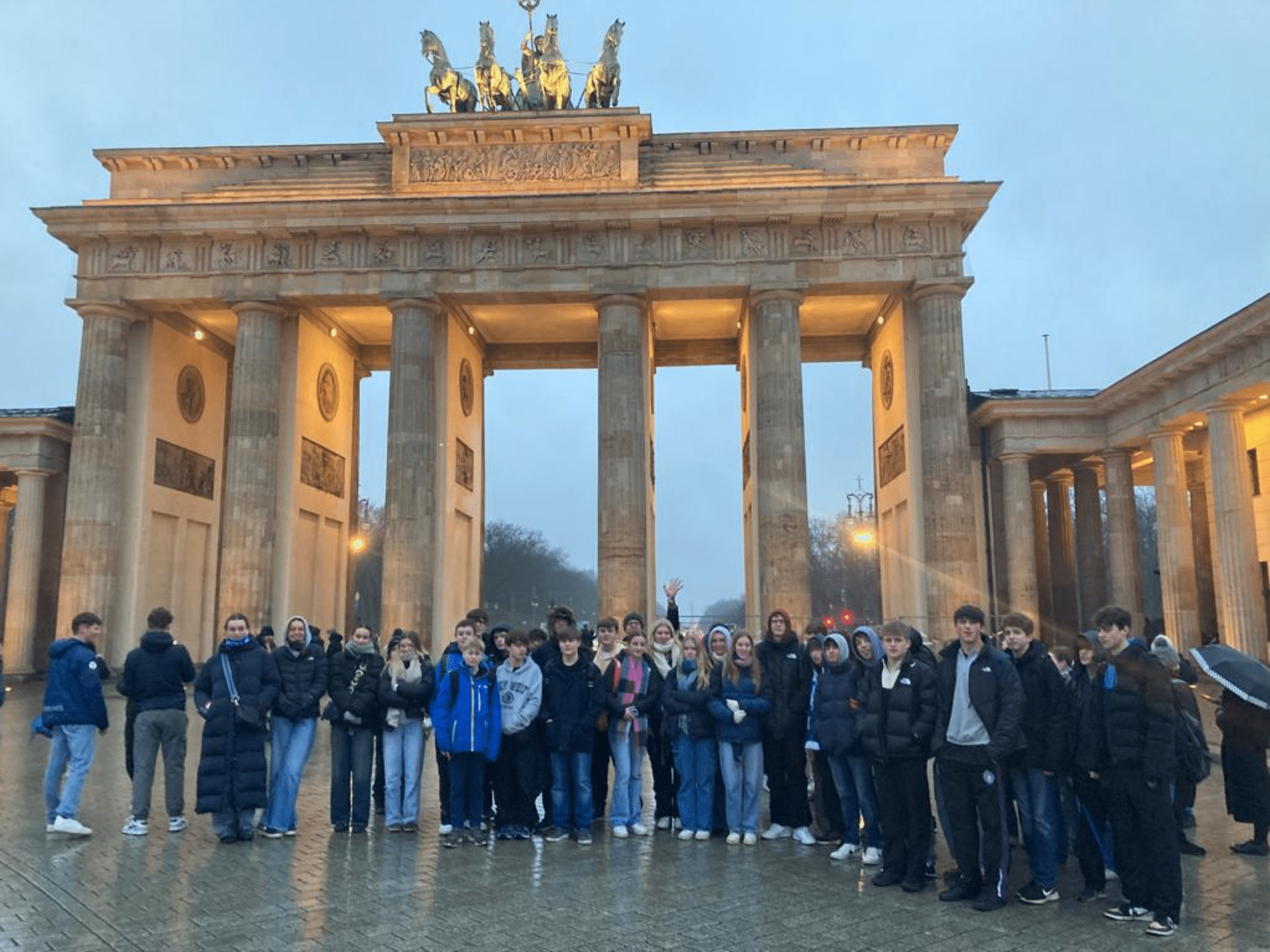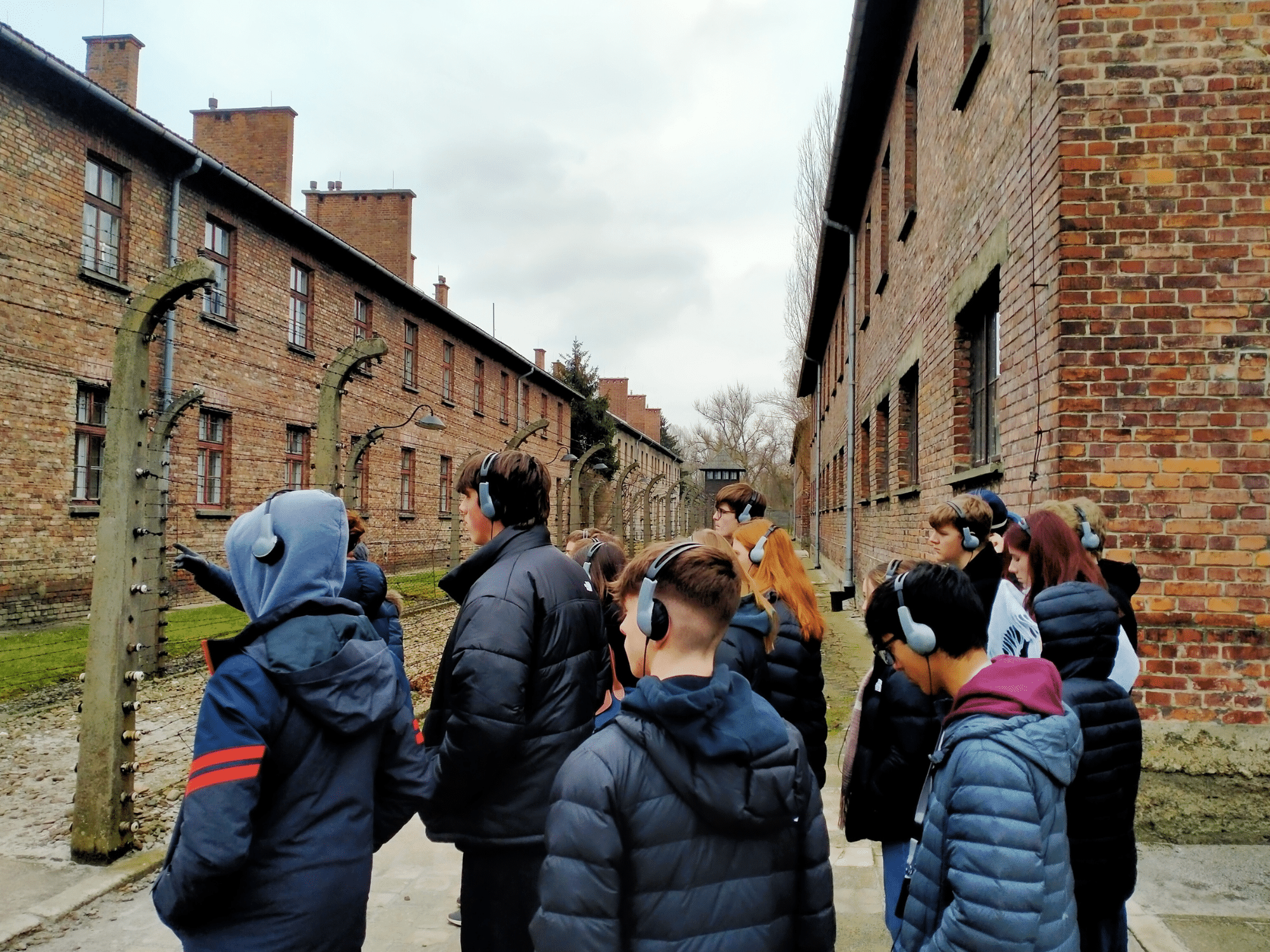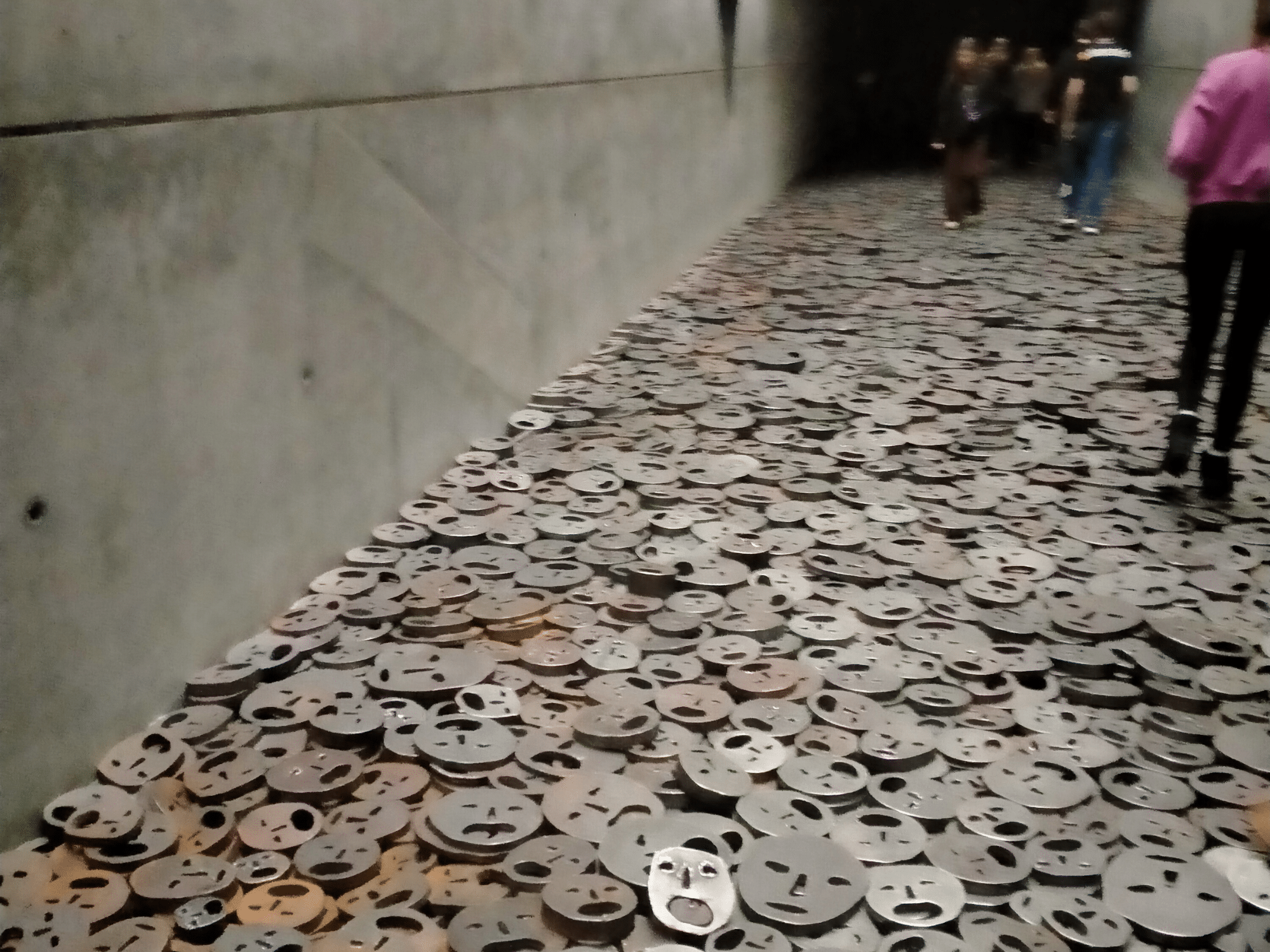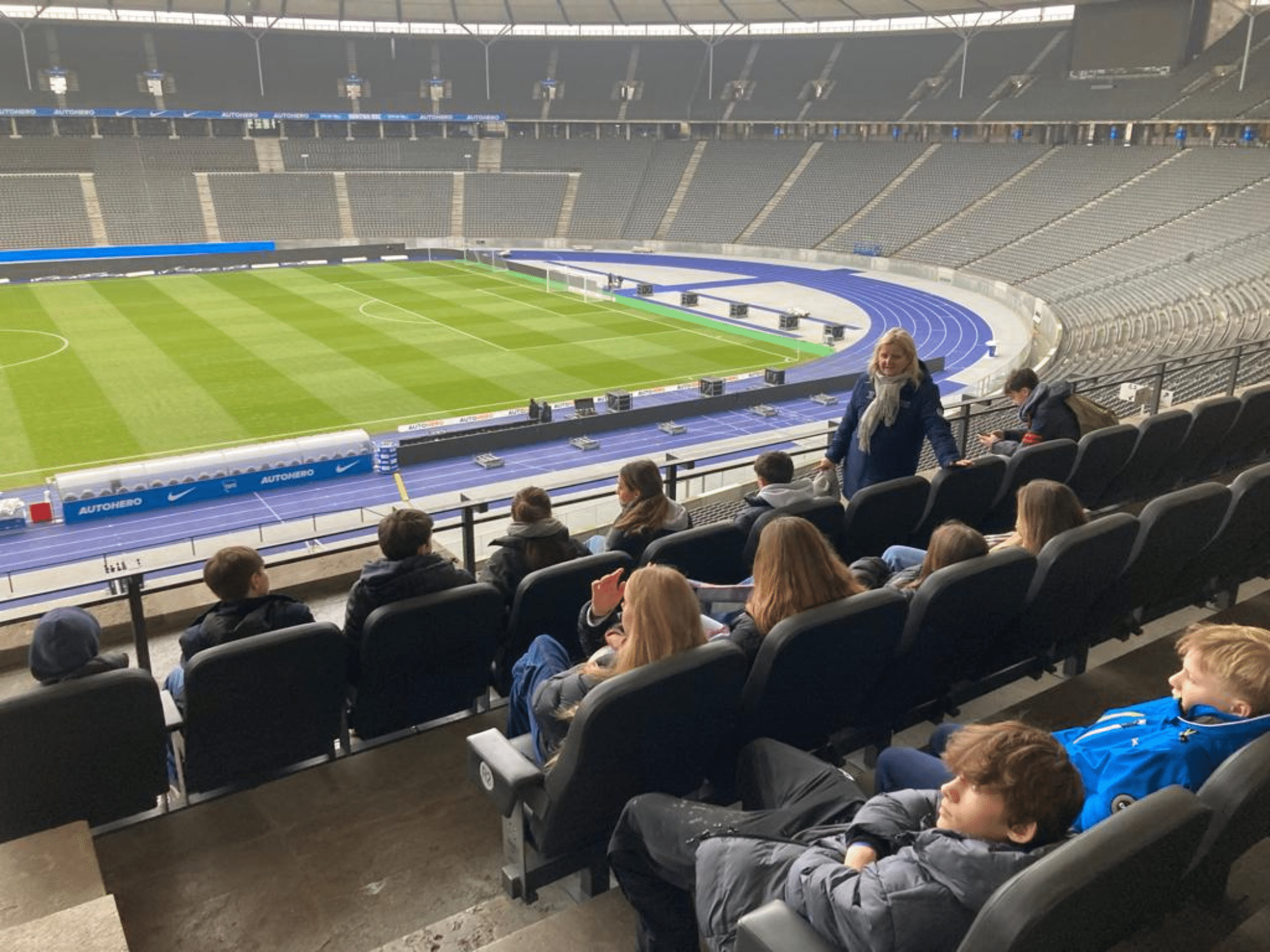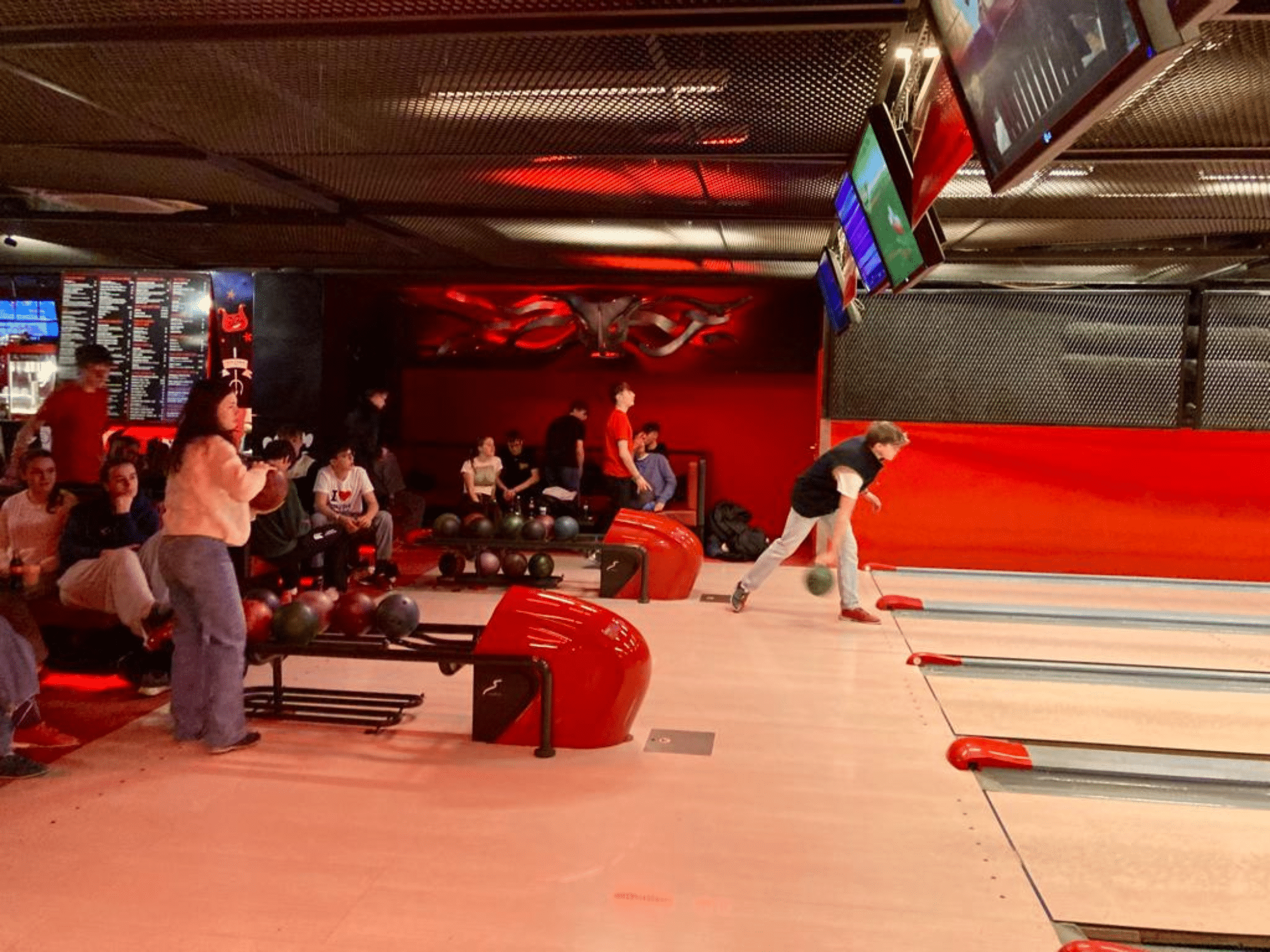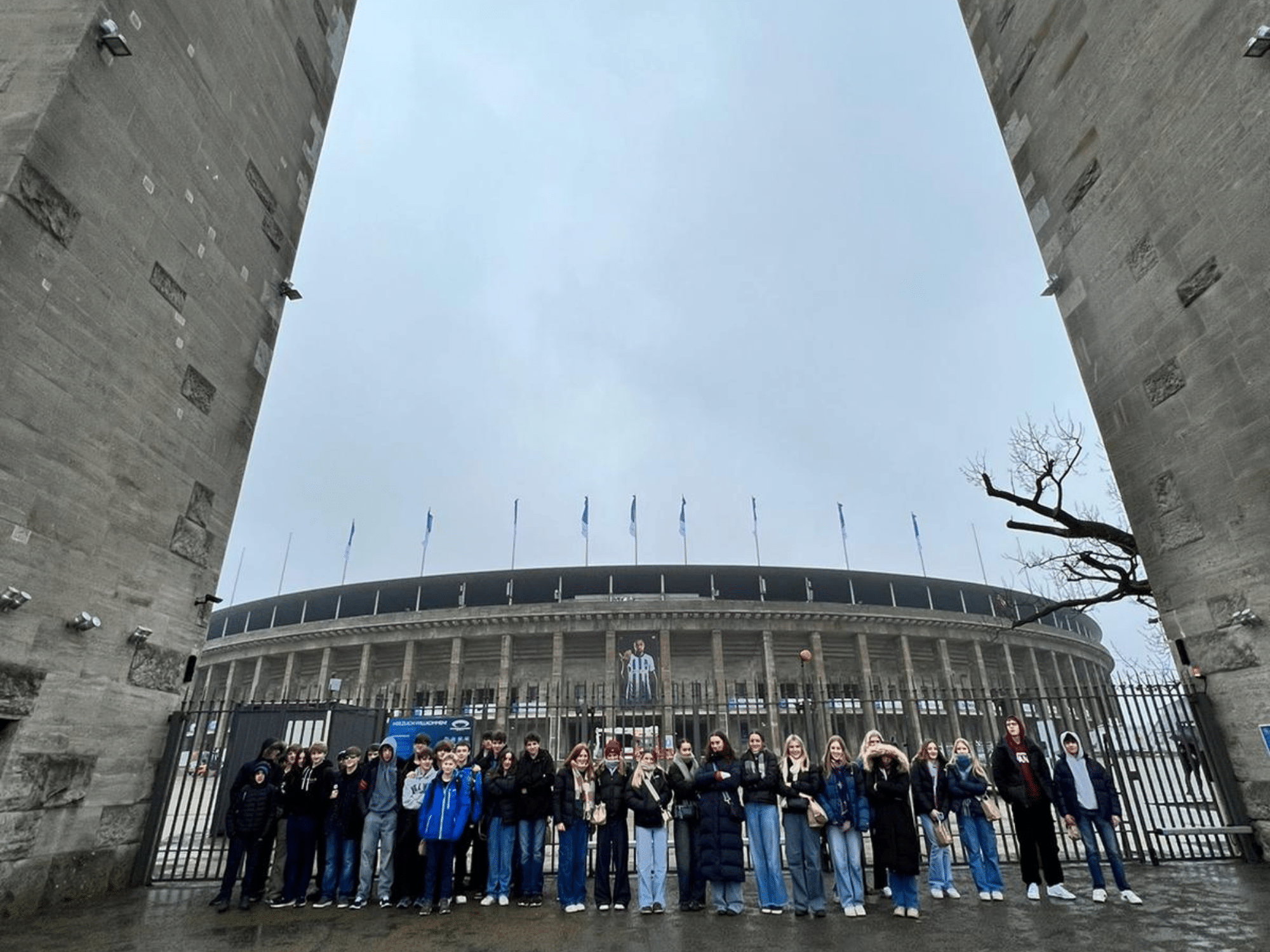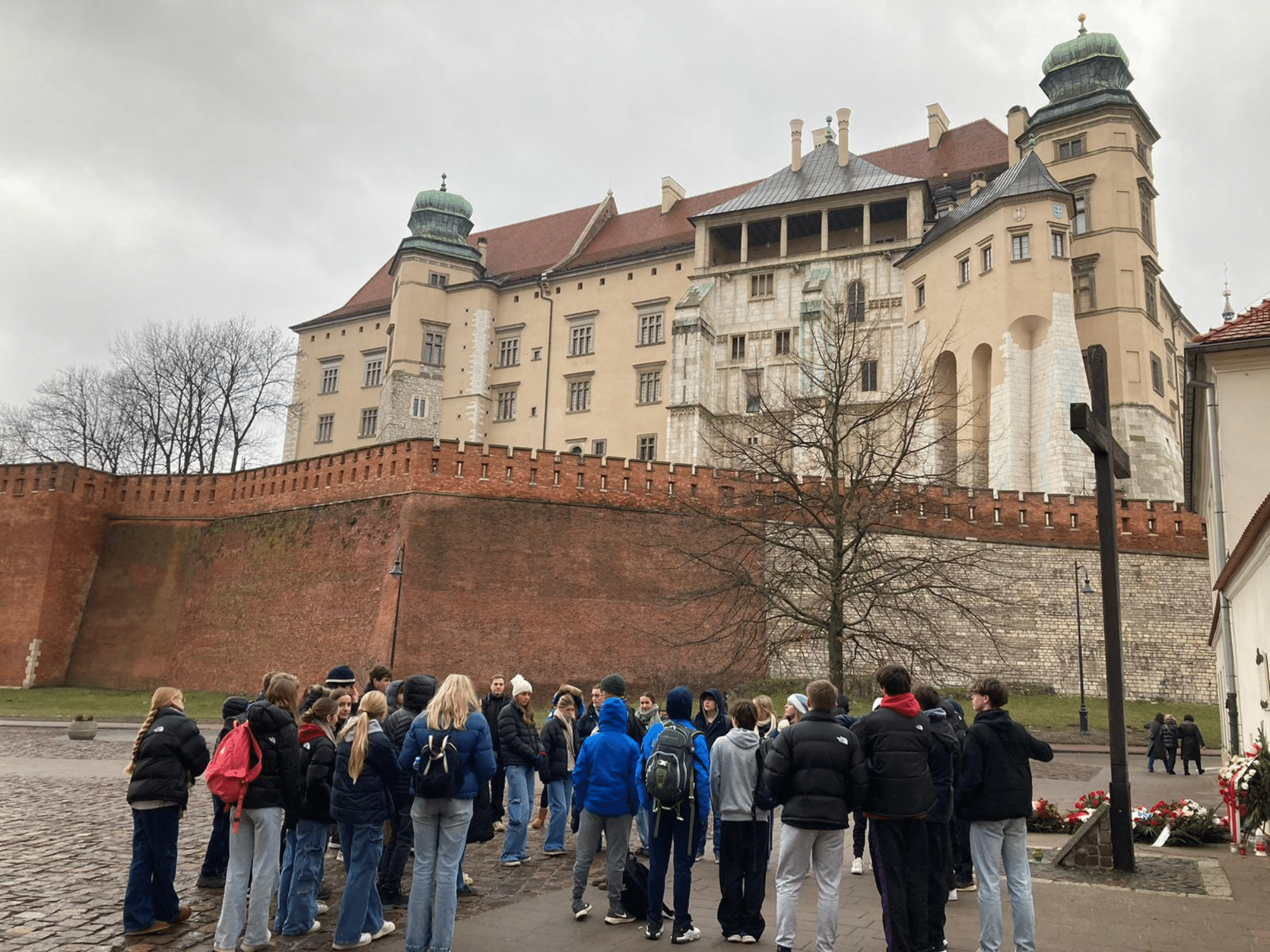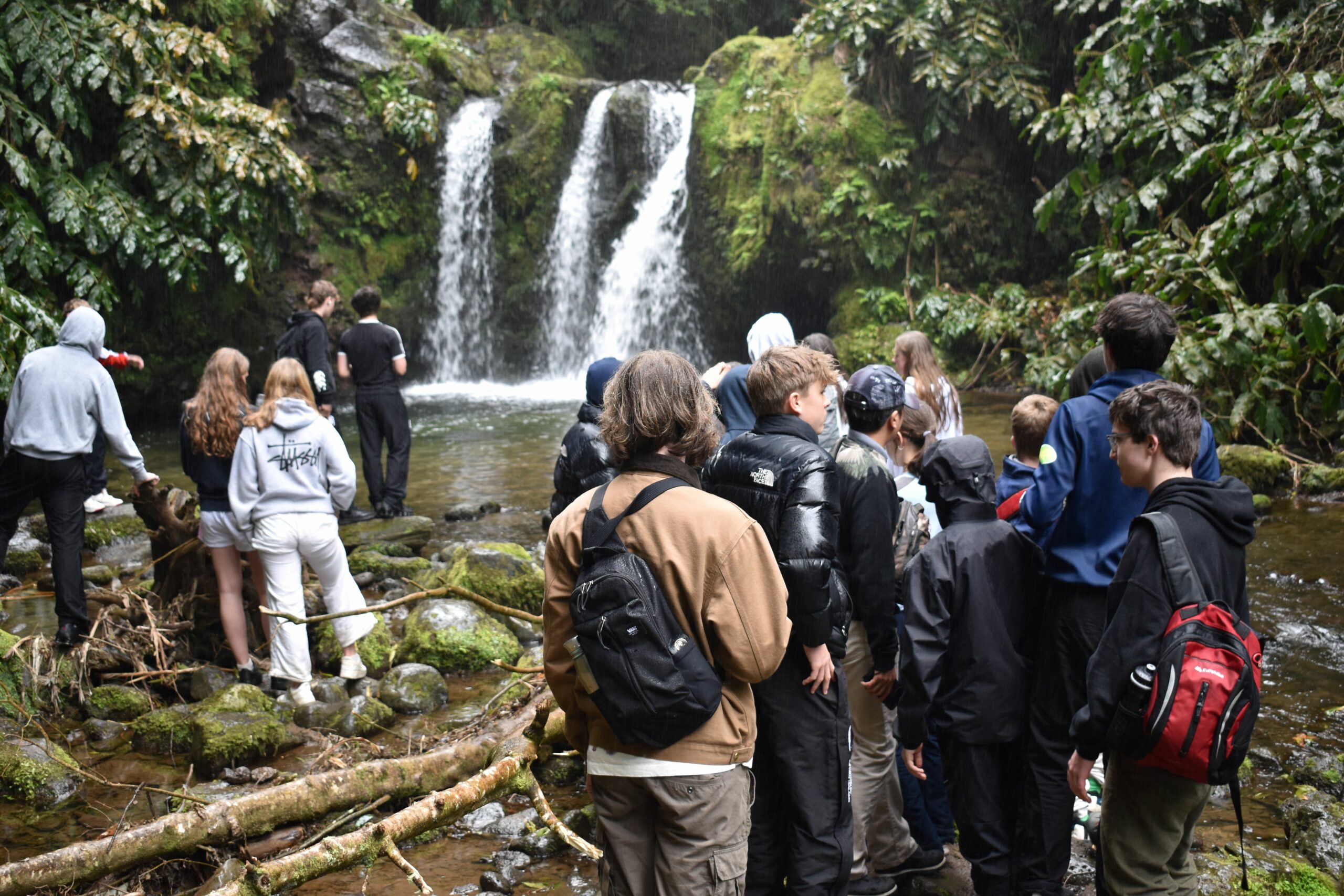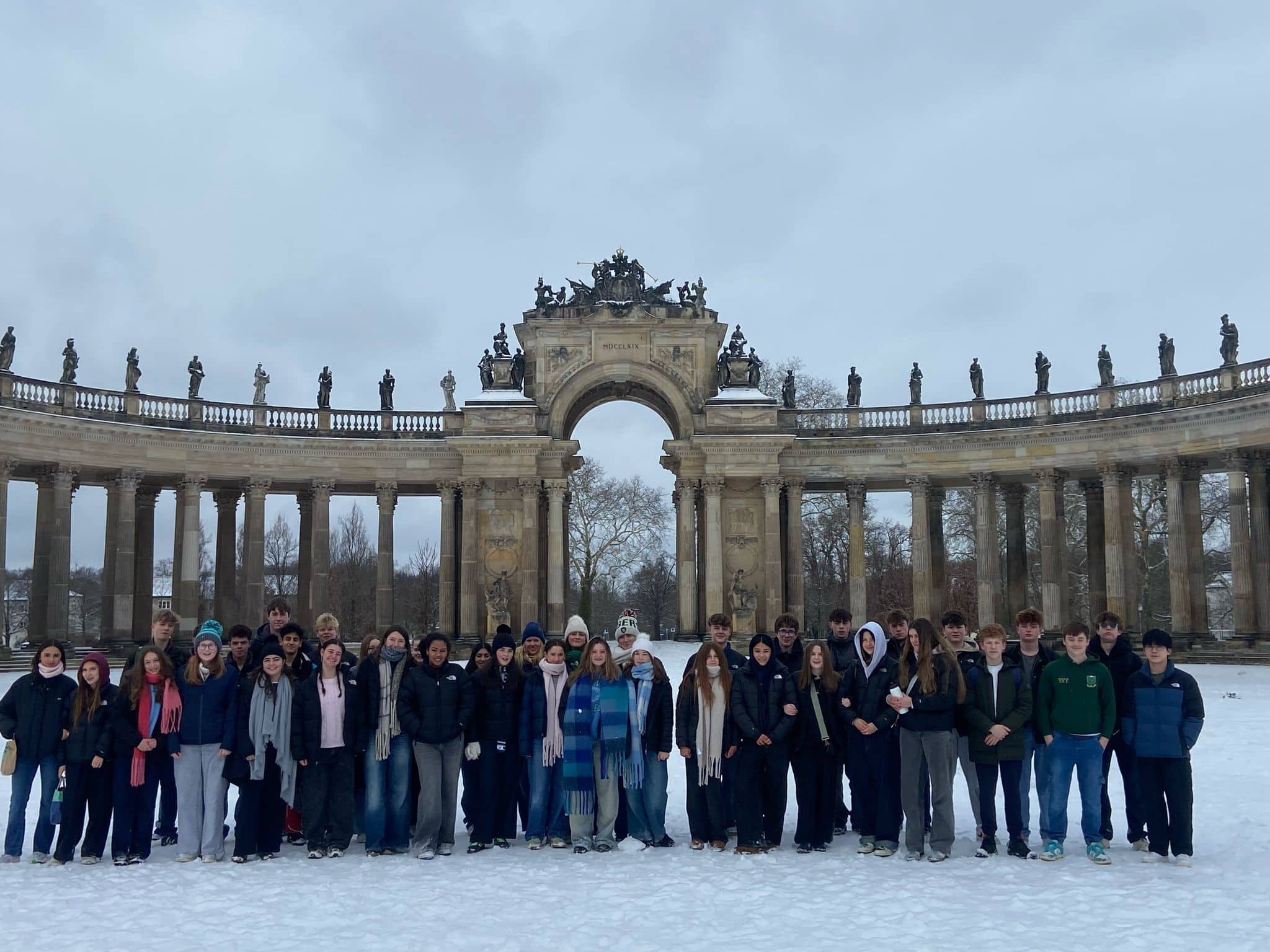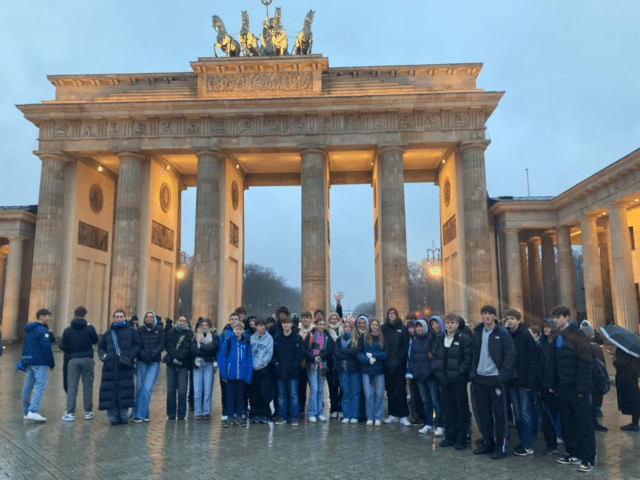
Teacher of History, James Aiken, tells us more:-
Day 1
The story of the Holocaust, and the wider context of Nazi policies, was explained at Wannsee, the location of the Wannsee Conference. Students were challenged to consider why educated men could have discussed such dehumanising and horrific plans. The process of antisemitic policies in Germany and Europe during the 1930s and 1940s was discussed, and students revisited and explored in greater depth the timeline of antisemitism and the Shoah.
In the afternoon, they visited the 1936 Olympic Stadium and built an awareness of Hitler’s hopes to build a Third Reich and the power architecture that projected these goals. They also explored the Berlin Wall Memorial and listened to Mr Arnold’s erudite talk on the reasons for the building of the wall and its impact on Berlin from 1961 and beyond. To round off the first day, they visited the Brandenburg Gate for some photos and enjoyed the spectacular nighttime views from the glass dome of the Reichstag. A leisurely evening meal and a good night’s sleep were welcomed by all.
Day 2
Our second day in Berlin was equally eventful, beginning with a visit to Sachsenhausen Concentration Camp, just outside Berlin. The students’ understanding of the Nazi’s antisemitic policies and aims was brought to a head with the stark reality of this memorial. The engagement from the students was outstanding, with the prior learning from the day before, leading to insightful questioning as we conducted our tour of Sachsenhausen. We continued our day with a visit to the Jewish Museum, where we explored not just the Shoah but the long-term impact on the culturally diverse Jewish communities of Europe, the place of the Shoah in the history of the Jews, and how the Shoah is remembered through art, literature, architecture, and other forms of cultural expression. Our time in Berlin was busy but soon over, as we departed overnight to Krakow.
Day 3
After a swift rest and some fortifying breakfast, we attended a talk from a Holocaust survivor in the Galicia Museum. The talk was hard-hitting and left many students speechless, and the need for time to process the remarkable story they had heard. Some respite was enjoyed by the weary students, as we toured the beautiful old city of Krakow, focusing on Wawel Castle and Krakow’s UNESCO World Heritage Site, Market Square. The students had some welcome downtime to explore the square and develop a sense of the history of Krakow as an important historic city in Poland. We finished the day with some competitive bowling and the time and space to process the huge amount students had learnt over the past days.
Day 4
We started with a visit to Auschwitz Birkenau. The scale and desolation of the site struck many students, as they considered the inhumanity of the crimes committed at Auschwitz, whilst recalling their talk the previous day. The narrative of the trip culminated at Auschwitz, demonstrating the distant decisions made at Wannsee born in the large-scale complex of Auschwitz Birkenau, a complex that imprisoned and murdered 1.1 million people during the Shoah. Along with our visit to the Schindler Factory Museum, the day was finished with a cathartic evening of Polish folk music and dance, and traditional food. An unexpected yet enjoyable and uplifting evening to finish an outstanding trip.
It was a life-changing trip that all students engaged on many levels. It was encouraging to hear students reflect on their own lives and how fortunate many of them felt. To hear them consider how this could happen and what lessons could be learnt to prevent further genocides. The students’ maturity was heartwarming. They sought to empathise with the stories they heard but understood the difficulty of truly relating to the hardships and terror inflicted upon those persecuted. I would like to thank all the students for their engagement with the trip, and also thank Mr Arnold, Miss Musk, and Mr Gelderbloom, for helping staff the trip.
